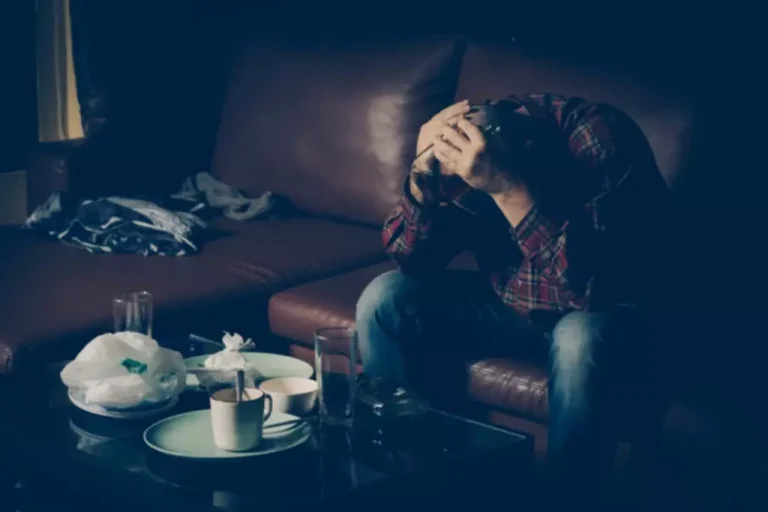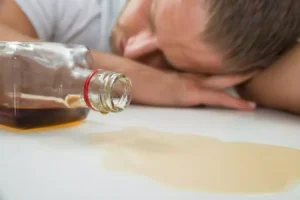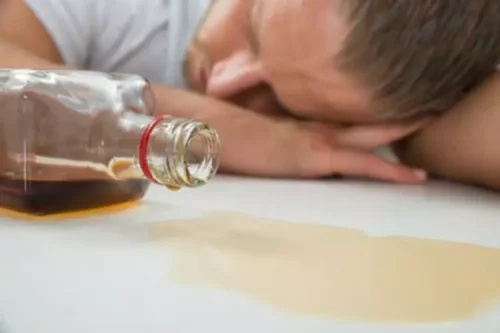Alcohol and Depression: The Link Between Alcoholism and Depression

While SSRIs and SNRIs are often the first-line antidepressants for individuals with alcohol use disorder, the choice of medication should be tailored to each person’s specific needs and medical history. Combining antidepressants with medications specifically targeting alcoholism, such as naltrexone or acamprosate, can provide a more comprehensive pharmacological approach. If you or a loved one is struggling with a co-occurring mental health disorder and alcohol addiction, it’s important to remember that you are not alone. Evidence-based dual diagnosis treatment can lead to positive health outcomes. They may be able to help determine one’s medical needs and perhaps refer them to a suitable rehab center. Additionally, one may consider visiting the SAMHSA treatment locator to search for programs by zip code.
Finding Treatment for Alcohol Addiction and Depression
This often means abstaining from alcohol or significantly limiting its consumption. It’s crucial to work closely with healthcare providers to develop a treatment plan that addresses https://ecosoberhouse.com/ both depression and any issues with alcohol use. It can be tempting to drink if you’re feeling unhappy, but there’s a better solution out there.
Patient Health Questionnaire-8 (PHQ-8; (Kroenke et al., ):
Today in the United States, alcohol dependence is almost always treated in an outpatient setting, where continued drinking and poor treatment attendance can be major obstacles to observing periods of abstinence. Clinicians are typically expected to decide how to treat depression in patients who are actively drinking, without benefit of observing that patient during an extended period of abstinence. Interview techniques that have been developed to help clinicians determine the origin of a patient’s depression have demonstrated reliability and validity in academic settings.14-16 However, little is known of the utility of these techniques in general practice. Alcohol-induced depressive disorder is a depression-like condition that happens only when drinking alcohol and shortly after withdrawal. Alcohol has been long consumed by humans, dating back to prehistoric eras.
What Are Antidepressants?

You should usually avoid or limit alcohol use if you’re taking an antidepressant. Depression medicines mixed with alcohol may increase central nervous system (CNS) side effects, like dizziness, drowsiness, confusion and trouble concentrating. Also, tell your healthcare professional about any other health conditions you might have and any other medicines you take.
Other Treatments for Major Depressive Disorder
- Described as the buffering hypothesis (Cohen & Wills, 1985), data show that increased social support predicts less alcohol use in reaction to life stress (Peirce, Frone, Russell, & Cooper, 1996).
- People who have both tend to have more severe symptoms than those who have only one disorder.
- The advent of SSRIs, many of which are FDA-approved, mitigated many of the safety concerns about depressed alcohol-dependent patients taking antidepressants.
- Finally, while depression may precede or be precipitated by alcohol dependence, implying causation, there may be common risk factors for depression and for alcohol dependence.
- When working with a patient through a cognitive behavioral therapy approach, these typically take 5-25 sessions, as opposed to other therapy types.
- 2019 research suggests that depressive disorders are more common in people with alcohol dependence than in those who engage in alcohol misuse, like binge drinking.
- A 2019 review reveals that depressive disorders are the most common mental health disorders in people with AUD.
The good news is that treating both alcohol misuse and depression can make both conditions better. Consuming alcohol while taking antidepressants can have several negative effects on the medication’s efficacy and the overall treatment of depression. Understanding the Risks and Interactions is a crucial question that many individuals grapple with during their treatment journey.

- DSM-IV-TR distinguishes between major and substance-induced depressive episodes and related disorders.
- A common recommendation for newcomers seeking treatment is to go to “90 meetings in 90 days,” establish a routine, build a support network, and reinforce commitment to recovery.
- Major depressive disorder (MDD), also referred to as clinical depression or depression, is a mood disorder where a person has a consistently low or depressed mood and no longer finds interest in activities that used to bring them joy.
- Always check with your healthcare provider or pharmacist for possible drug interactions.
- In addition to substance abuse counseling and treatment programs, there are many support groups including Alcoholics Anonymous and newer, online communities.
- Unfortunately, PLWH are at elevated risk for social deprivation, particularly if they are depressed and drinking (Enel et al., 2019).
Several studies suggest that military veterans are more likely to experience depression, post-traumatic stress disorder (PTSD), and misuse alcohol. The interaction between alcohol and antidepressants is a complex and marijuana addiction potentially dangerous one. While the specific risks can vary depending on the type of medication and individual factors, it’s generally advisable to avoid alcohol while undergoing treatment for depression. The potential consequences, ranging from reduced treatment efficacy to increased risk of accidents and self-harm, underscore the importance of taking this interaction seriously. Major depressive disorder involves persistent and prolonged symptoms, but depression, in general, takes on many different forms.

Tricyclic and Tetracyclic Antidepressants
- Recovery from co-occurring alcoholism and depression is possible with the right treatment approach and support.
- Acamprosate helps restore neuronal balance disrupted by chronic alcohol use.
- No matter your drink of choice, alcohol can easily be abused and often is, especially when it’s used to self-medicate.
- However, it’s essential to carefully monitor for potential interactions and side effects when using multiple medications.
- According to experts, the best antidepressants for alcoholics are nefazodone, desipramine, and imipramine.
- In this study, data regarding mean alcohol drinks per day in the past month were used.
This article briefly describes prevalence, assessment, clinical features, and treatment of comorbid major depression does alcohol make depression worse and alcohol dependence. They’re able to treat individuals facing various conditions, including, but not limited to, substance abuse, mental health disorders, co-occurring disorders, alcoholism, and more. If you’re looking for some of the best assistance for recovery available, be sure to consider Agape Treatment Center for rehabilitation.




